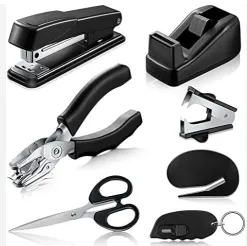Motors are electrical devices that play a crucial role in various industries and applications by converting electrical energy into mechanical energy. They operate based on a fundamental principle: the interaction between a magnetic field within the motor and the electric current flowing through a wire winding, which results in the generation of force in the form of torque applied to the motor's shaft.
How Motors Work:
Motors operate on the principle of electromagnetic induction. When an electric current flows through a wire winding, it creates a magnetic field around the wire. In a motor, this wire winding is arranged in a specific configuration, often in the form of coils or windings.
The interaction between the magnetic field generated by the current and the permanent magnets or other magnetic components within the motor creates a force known as electromagnetic force. This force causes the motor's shaft to rotate, thereby producing mechanical motion. The rotation of the shaft can be harnessed for various applications, from driving machinery in industrial settings to propelling vehicles and appliances in everyday life.
Types of Motors:
Motors come in various types and sizes, each designed for specific purposes and operating under different conditions. Some common types of motors include:
- Direct Current (DC) Motors: These motors are powered by a direct current source, typically from a battery or a controlled power supply. DC motors are known for their simplicity, precise speed control, and suitability for applications such as robotics and electric vehicles.
- Alternating Current (AC) Motors: AC motors are powered by the alternating current from an electrical power grid or generator. They are widely used in household appliances, industrial machinery, and HVAC systems. AC motors come in different configurations, including synchronous and asynchronous (induction) motors.
Applications of Motors:
Motors are ubiquitous in our modern world, contributing to countless applications. Some common examples include:
- Electric fans and appliances in homes
- Industrial machinery such as conveyor belts and pumps
- Electric vehicles and hybrid cars
- Aircraft propulsion systems
- Robotics and automation in manufacturing
- HVAC systems for heating and cooling buildings
In summary, motors are essential devices that transform electrical energy into mechanical energy, driving a wide range of mechanical systems and devices across various sectors. Their versatility and adaptability make them integral to modern life, enabling progress and innovation in countless industries.


 Login with Google
Login with Google





